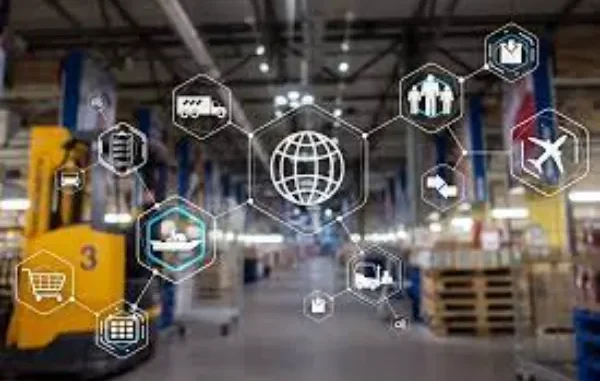

For decades, artificial intelligence has promised efficiency, automation, and speed. It has delivered, transforming industries from manufacturing to finance. Yet, the current generation of AI often feels impersonal—a powerful, generalized tool applied broadly to common problems. We interact with smart assistants that execute commands, recommendation engines that guess preferences, and algorithms that classify data. But they don’t know us.
The next great leap in technology is the dawn of the Era of Personalized AI, a transformative phase where future systems will move beyond processing data to achieving genuine, deep, and continuous understanding of the individual. This is not just about better suggestions; it’s about AI becoming a cognitive extension of the self, anticipating needs, managing complexity, and truly supporting human potential on a granular, personalized level. This shift represents the transition from a helpful machine to a genuinely insightful partner.
The Foundations of Granular Understanding
The foundation of personalized AI rests on two pillars: ubiquitous data synthesis and deep contextual awareness. Today’s AI analyzes siloed data—a purchase history here, a search query there. Tomorrow’s personalized AI will synthesize all available digital and physical data streams—biometric markers, emotional fluctuations detected by subtle voice analysis, real-time environmental context, historical behavioral patterns, and declared intentions—to construct a rich, multi-dimensional digital twin of the user.
Imagine a system that observes your sleep patterns, analyzes your calendar, checks your blood glucose monitor, and correlates all this with your tone of voice during morning meetings. It learns that stress triggers specific physical responses and that those responses lead to certain cognitive dips later in the day. It moves beyond predicting what you might like to predicting how you will feel and what you will need to thrive. This level of understanding requires proactive, continuous learning, turning every interaction, every piece of data, and every environment into a moment of deeper insight. The AI doesn’t just adapt to your past; it predicts and shapes your future in real-time.
AI as a Personal Cognitive Assistant
The most visible manifestation of personalized AI will be the emergence of sophisticated, anticipatory cognitive assistants. These AIs won’t wait for a prompt; they will initiate action based on their comprehensive understanding of your goals, state of mind, and available resources.
In the professional sphere, for instance, a personalized AI will be instrumental in navigating career complexity. It will analyze your skills, cross-reference them with market demands, assess your current job satisfaction based on your digital output patterns, and proactively identify optimal next steps. Tools that focus on maximizing individual professional output are already signaling this future. For example, understanding what is Rezi AI and similar specialized AI applications shows how personalized technology can optimize traditionally human-intensive processes, such as resume and career document building, by ensuring the output perfectly aligns with the specific requirements of the user’s target job and their unique professional narrative. This is micro-personalization applied to macro-career goals.
This cognitive assistant will manage your information overload, filter incoming communications based on your current cognitive load, and even pre-draft responses using your preferred tone and established communication style. It will be the ultimate filter, allowing only relevant and necessary information to reach you, maximizing focus and reducing decision fatigue.
Deep Personalization in Key Sectors
The impact of truly understanding AI will be most profound in critical sectors like healthcare and education.
In healthcare, personalized AI will drive the age of precision wellness. Instead of generalized diet and exercise plans, the AI will create dynamic, hyper-specific health protocols. By continuously monitoring an individual’s unique genetic code, microbiome, metabolic rate, and environmental exposure, it can adjust medication dosages, recommend the optimal sleep schedule for peak cellular repair, and even predict the onset of certain conditions years in advance. The AI becomes a proactive health guardian, intervening with recommendations long before symptoms even manifest (source).
Similarly, education will be revolutionized by adaptive learning AI. The current model forces students into standardized paths. Personalized AI will create an entirely unique curriculum for every student, adjusting the pace, delivery method (visual, auditory, hands-on), and even the emotional tone of instruction based on the student’s real-time engagement and learning style. If a student learns best through analogy and creative problem-solving while experiencing high-stress levels, the AI will deliver content in that specific format, at a less demanding pace, until the student’s cognitive and emotional state stabilizes. It teaches not just what but how the individual is best equipped to learn.
Navigating the Ethical Frontier
The journey to true understanding is intrinsically linked to the delicate balance of privacy and control. An AI that knows everything about you is also a system with immense potential for misuse. The personalized AI era necessitates a new, robust ethical framework where transparency and user agency are paramount.
Future technology must be designed with ‘explainable AI’ (XAI) principles, allowing users to understand why a recommendation was made and which data points were used to construct their personalized profile. Furthermore, individuals must retain ultimate control over their digital twin, deciding which data is shared, for how long, and for what purpose. The relationship between human and AI must be a symbiotic partnership, built on trust, not a hierarchical relationship based on surveillance. We must ensure that the very technology designed to understand and empower us does not inadvertently control or constrain our freedom.
Conclusion
The Era of Personalized AI promises a future where technology is no longer an external device but an integrated partner that truly understands the nuances of human existence. It will be a world where inefficiency, poor health outcomes, and generalized services are relics of the past. By synthesizing data into genuine insight, these future systems will unlock unprecedented levels of human potential, optimization, and well-being. As this technology matures, the most profound question will shift from “What can AI do?” to “How deeply can AI understand me, and how can that understanding help me become the best version of myself?” The answer lies in the deeply personal, continuously adapting, and highly intelligent systems of the near future.






Leave a Reply